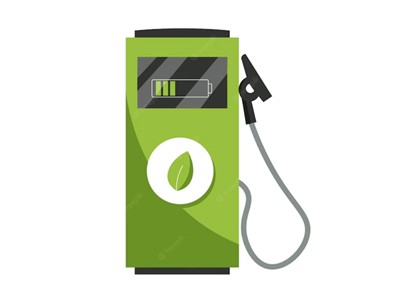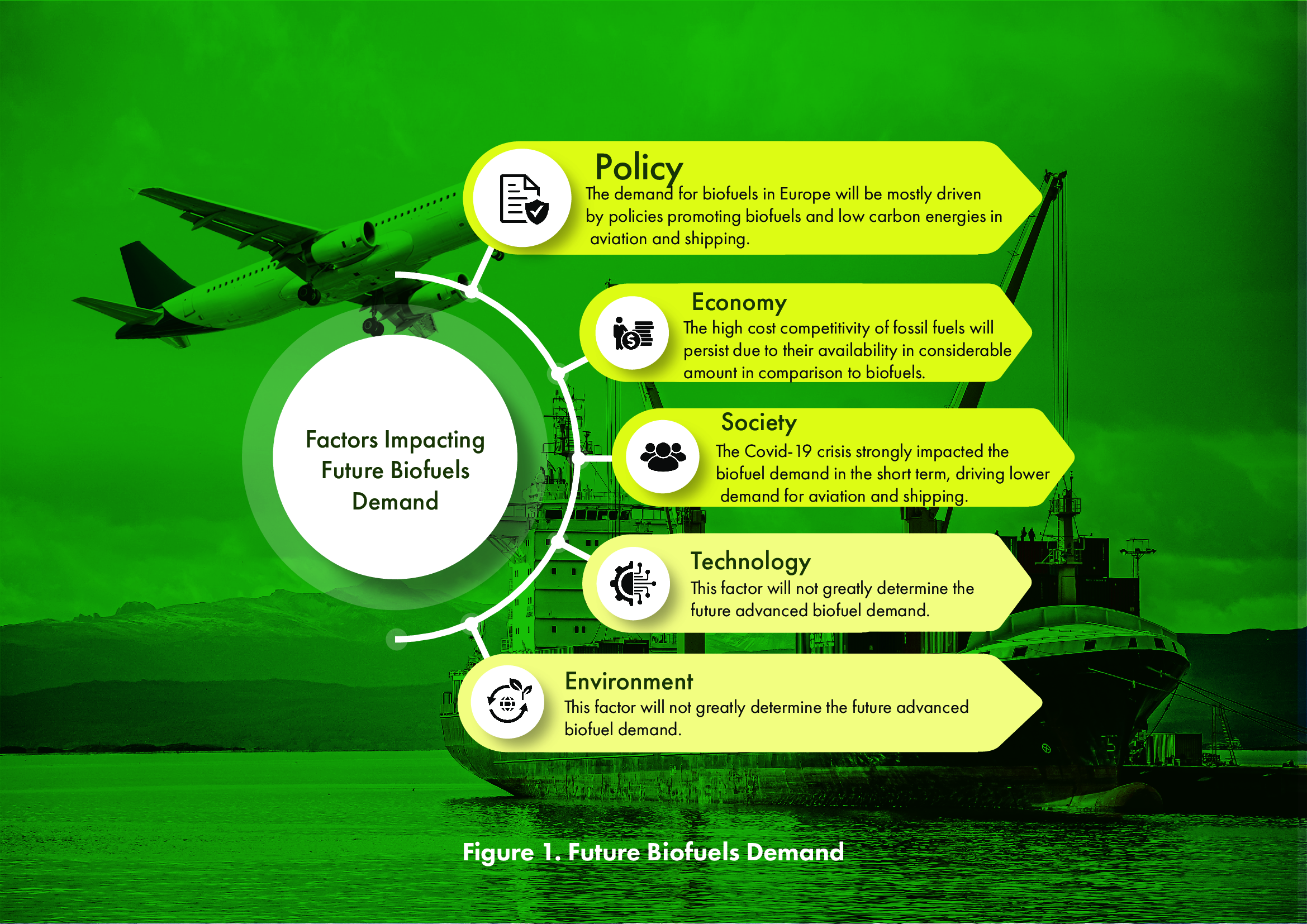The transport sector, being a major contributor to fossil fuel emissions, is under increasing pressure to meet European Union demands for carbon neutrality. Between 1990 and 2019, carbon emissions from international aviation and shipping increased by 146% and 34% respectively. This was the fastest growth in the whole transport sector – the only sector in which emissions have risen since 1990 (European Parliament, 2019). Helping these sectors become more sustainable is a pivotal goal of LGI within the BL2F (Black Liquor to Fuel) project, which aims to help meet the EU target of climate neutrality by 2050 while encouraging the shift towards a more sustainable future.

What are advanced biofuels?
Biofuels are low-carbon fuels made from raw materials derived from plants or animals. Questions of concern have been raised around their role in turning crops into fuel in the midst of global food shortages as well as having a damaging impact on the environment, emitting three times more than oil. Meanwhile, advanced biofuels – the only type of biofuels we work on at LGI – generally derive from non-food-based feedstocks, such as forestry residues, industrial waste and residue streams. They use less arable land, making them more ethically sourced and a suitable sustainable alternative to both fossil fuels and previous forms of biofuels.
BL2F’s focus is to create biofuel from black liquor through a process called ‘Integrated Hydrothermal Liquefaction’ (IHTL). Using this process, there is no need to separate out the lignin which, in turn, lowers CO2 emissions.
Why is LGI interested in the shift towards advanced biofuels for aviation and shipping?
Increasing the use of advanced biofuels means diversifying energy sources – and curbing the use of fossil-fired energy sources is one of our main goals in the projects that we work on here at LGI.
In 2022, the European Parliament backed the European Commission’s proposal of zero emissions from new cars and vans by 2035. This implies the ban of combustion engines in new cars and vans, and prevents biofuels, advanced biofuels and e-fuels from being used in the road transport sector from 2035. While advanced biofuels are ruled out of EU strategy for the road transport sector, these solutions are still needed for aviation and shipping.
In the BL2F project, which aims to develop an advanced biofuel for the aviation and shipping sectors, LGI has assessed the future demand for biofuels examining how the market will look by 2040, as well as carrying out a study of policies at national, European and global levels. Work carried out by our team takes a stab at what exactly will determine the future demand for advanced biofuels in aviation and shipping. Could the shift toward advanced biofuels achieve the decarbonisation of aviation and shipping?
What’s driving the demand for advanced biofuels?
As a part of our key role within the BL2F project, our team’s study examined the factors that determine the future demand for biofuel, taking into account various political, economic, social, technological and environmental considerations. After interviewing several experts in the field, political factors were found to be most influential in the demand for biofuels in aviation and shipping. That is, policies and directives which promote low-carbon energies and domestic and local energy production, among others, will be most decisive in shaping future biofuels demand. As long as policymakers continue to implement such ambitious objectives, demand is expected to rise in the next 20 years. In other words, governments and decision makers bear the greatest responsibility in meeting the EU target of climate neutrality by 2050.

So who’s doing what?
LGI analysed how carbon neutral targets are being met at international, European and national levels. Among the nine European countries moving forward with policies enhancing their use of advanced biofuels, Sweden, Norway and Finland demonstrated the most progressive policies regarding the incorporation of advanced biofuels in aviation. Our research indicated that these countries are the most proactive in achieving the targets set by the EU.
EU legislation has been key in encouraging member states to implement mandates for advanced biofuels in the last few years – the implementation of a carbon quota system guides countries on emission levels they must not surpass. In July 2021, the European Commission proposed a revision to the Renewable Energy Directive (RED II) to accelerate the uptake of renewables in the EU and to help reach the 2030 energy and climate objectives. The directive sets a common target – currently 32% – for the proportion of renewable energy in the EU’s energy consumption by 2030 for EU member states. EU members must also ensure that at least 14% of their transport fuels come from renewable sources by 2030.
International organisations have also played their part in controlling emissions in aviation and shipping, with the Carbon Offsetting and Reduction Scheme for International Aviation (CORSIA) aiming to stabilise greenhouse gas emissions from international aviation at their pre-COVID 2019-2020 levels and the International Maritime Organisation (IMO) working to cut maritime emissions in half by 2050, compared to 2008. Setting ambitious policy goals such as these has the potential to offer new opportunities for the development of BL2F technology.
What’s the next necessary step?
The European Policy framework is headed in the right direction, with countries increasingly incorporating more and more biofuel mandates and, according to our research, this strong policy action will encourage demand. However, although the RED II and other policies promoting biofuels have ambitious long-term goals, policies are reformed all too often with decisions being reversed or target goals being postponed. This then runs the risk of jeopardising potential investments in biofuels.
Are advanced biofuels the future in aviation and shipping?
Although substituting fossil fuels with advanced biofuels would be a more efficient and sustainable way to reduce carbon emissions of planes and ships, advanced biofuels are produced in small quantities compared to fossil fuels. This means that there is not enough biomass to create as much biofuel as fossil fuel, which will most certainly continue to dominate the market in 2040 (Energy for Humanity, 2020). However, the good news is that the growth potential of advanced biofuels is huge. Politicians, businesses and technology are rapidly pushing its production.
Although advanced biofuels are a promising alternative to break free from fossil fuel dependency, there is no certainty that they will go on the market. That’s why the need to find other sustainable alternatives has never been more pressing. If not biofuels, then a mixture of low-carbon energy sources will be vital to paving the way to a cleaner energy system.
Read our report “Identification of major trends in future biofuel demand” and contact us if you’d like to analyse major market trends relevant to the environment and your organisation.

Jasmine Nicoletti
Dissemination Officer
Meet me on LinkedIn
The views and opinions expressed in this blog post are solely those of the original author(s) and/or contributor(s). These views and opinions do not necessarily represent those of LGI or the totality of its staff.




FOLLOW US